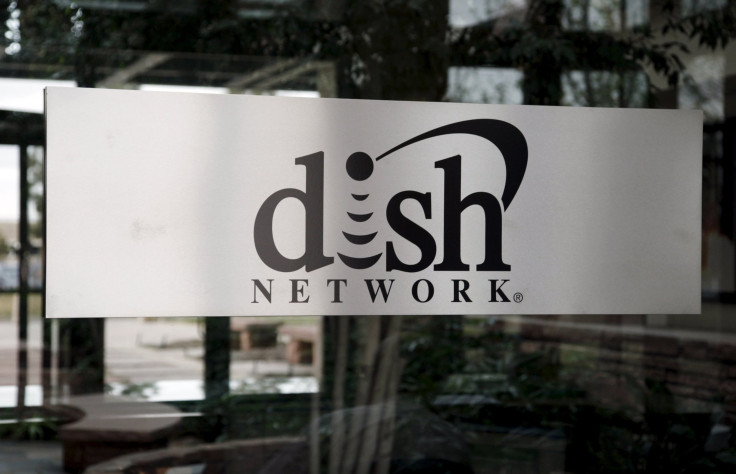Why Dish Network Is An Unsung Hero: TV Blackouts Are Bad, But Price Hikes Are Worse

It’s not often that you get the opportunity to call your cable company a “hero,” but this might be one of them: Dish Network is once again going to the mat with programmers over fee increases, and while its customers are complaining about yet another blackout for the satellite TV company, the ends may justify the means if you care about keeping your cable bill down.
Dish’s foe this go-round is Tribune Broadcasting Co., a subsidiary of Tribune Media that owns 42 stations in 33 markets, including Washington, D.C., Los Angeles and New York. The two companies have been unable to reach a carriage agreement, and because Dish isn’t afraid to play hardball, all 42 Tribune stations went dark for Dish customers Sunday in many of the nation's biggest cities. That was a problem for customers in Wilkes Barre, Pennsylvania, who wanted to watch Game 5 of the NBA Finals Monday night on their local ABC station, or theater-lovers in Richmond, Virginia, who wanted to watch the Tony Awards on CBS.
In order to make up for the blackout, Dish is offering affected customers a free antenna with which they can get those broadcast signals. “Tribune is demanding an unreasonable rate increase for channels that are available for free over the air,” said Warren Schlichting, Dish's executive vice president of programming, in a statement. “Actions like Tribune’s are what drive price increases and feed customer frustration for our industry.”
Dish CEO Charlie Ergen dabbled in the poker circuit in his youth, which must be when he perfected the art of calling a bluff. He’ll gladly tell Viacom or NBCUniversal to take a walk — leading them right up to the edge of a blackout.
He’ll also drop 129 local stations for two weeks — affecting 5 million homes — and, a month and a half later, drop another 38 stations for a couple of days. All AMC-owned networks disappeared from Dish customers’ lineup for three months in 2012. And it dropped the Turner networks and Fox News for a short time in 2014 and 2015.
All this brinkmanship hasn’t necessarily been good for Dish. Subscribers might not want their bills to go up, but they also hate being unable to watch the channels they want. Dish has borne the brunt of the pay TV industry’s losses in recent years. In 2015, it lost 81,000 subscribers. In the first three months of 2016, usually a time of net additions in the industry, it lost another 23,000.
Carriage disputes between pay TV companies and programmers aren’t exactly rare — contracts between cable companies and networks and station groups are up for renewal all the time. An actual blackout, in which the programmer yanks its feed from the system after the deadline for a new deal has passed, is a little less common, and seldom lasts more than a few days.
At the heart of these disputes are the skyrocketing fees that all pay TV companies have to pay to carry channels. That includes broadcast networks, despite the fact that they’re available to the American public for free with an antenna.
There’s a bit of nuance here: It’s the local affiliate stations that get to choose whether they are “must carry” stations that pay-TV operators have to carry but don’t pay for, or whether they’re optional stations. If they’re optional, then the law allows them to negotiate for “retransmission consent” fees. But the big broadcast networks like NBC and CBS that control those stations’ affiliations — whether they’re an NBC station or a CBS station — get a cut of those fees, which are now a major source of revenue for media companies.
The reason these “retrans” fees have become so important to broadcasters’ bottom lines is, in part, the fault of pay TV companies. Thanks to the proliferation of DVRs and subsequent live audience erosion, the TV ad marketplace is no longer the hotbed of revenue growth it once was. Under pressure from shareholders to keep growing, publicly owned broadcast companies have turned to retrans fees.
Dish and other pay TV companies are calling on the Federal Communications Commission to close that particular loophole, but thus far the FCC hasn’t done much more than open an investigation into the matter.
As with most businesses, Dish is motivated to stand up for its customers out of survival, rather than pure altruism. Dish is far more reliant on its TV customer base than most other pay TV providers. All of the big cable companies have their own internet businesses, which have picked up some of the slack from TV subscriber declines — indeed, Comcast’s broadband customers have outnumbered its TV customers for a couple of years now.
Dish doesn’t have a viable internet offering of its own to fall back on, right now. Until it does, it looks like Ergen and his lieutenants will keep fighting the good fight.
© Copyright IBTimes 2025. All rights reserved.






















